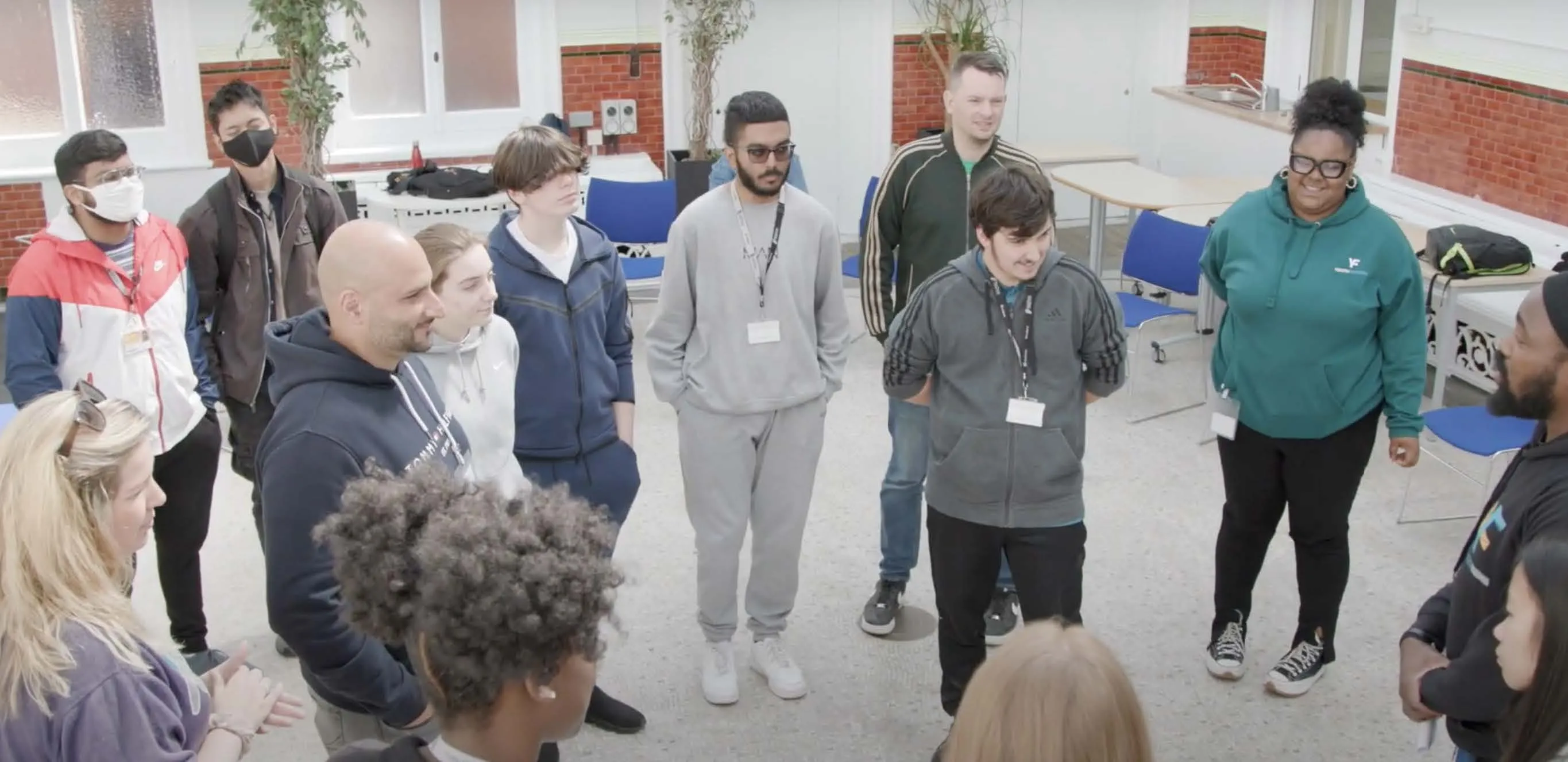With the practice of Ubuntu Archbishop Desmond Tutu left the world a precious gift: a virtuous circle of spiritual generosity and inclusivity to resolve conflict in a troubled world.
In the African nguni languages umuntu ngumuntu ngabantu means literally: we are people because of other people. I am because you are.
Based on our common humanity, the starting point of Ubuntu is to reach out to others - often across seemingly impenetrable barriers of alienation – to discover our interdependence.
In the process, we learn the power of empathy, dignity, and respect.
The theory is disarmingly simple, the practice requires experienced mediation, patience, and resilience.
Tutu Foundation UK in partnership with Youth Futures launched a successful pilot project in 10 London boroughs in 2017/2018 known as Ubuntu Round Tables.
They mediate between the Metropolitan Police and disenfranchised youth in deprived neighbourhoods where a toxic combination of knife-crime, gangs and drugs and often inappropriate policing and inadequate social services have contributed to an atmosphere of fear and hopelessness in some communities.
Ubuntu Roundtables (URT’s) seek to empower youth and in the process train mediators in facilitation and leadership skills.
The project works to mitigate the power imbalance that exists between youth and the police.
Therefore, the facilitators are largely 25 or under, black or from an ethnic minority, and may have been in difficult interactions with the police themselves.
The momentum built by the pilot project in 2017/2018 was interrupted by the pandemic.
In the past year, the roundtables have resumed and TFUK chair Clive Conway has held talks with senior police officers in London, the West Midlands and in prisons with a view to extending the reach of the round tables.
“The roundtables can be used to bring parties together in any situation where there is conflict whether schools, communities or prisons,” said Conway.
In recent months, the Tutu Foundation UK has held talks with like-minded charities to explore collaborative opportunities.
I recently attended a roundtable at the Skills Hub and Pride Academy in West Drayton and saw the huge potential of these encounters for conflict resolution and community building.
The ten police officers, five academy staff and a dozen or so learners with special needs from several schools interacted over two-and a-half hours under the guidance of Mark Murray, a founding facilitator.
The endorsement of the police officers, dedication of the academy staff and visceral presence of the students made for a vibrant engagement in which inclusivity trumped differences.
In the last week of January this year I travelled with Clive Conway and facilitator and motivational speaker Kheron Gilpin to participate in the annual conference of the Ubuntu Leadership Academy at the Gulbenkian Foundation in Lisbon attended by more than 1000 delegates from 16 countries.
Among the days’ proceedings was a video of the archbishop’s visit a decade ago and youth volunteers wearing black t-shirts bearing in white Nelson Mandela’s prison number 46664.
Kheron had the youthful audience enthralled with his energy and ubuntu-inspired spontaneity.
On the second day we visited a junior school amid a five-day immersion project in which the learners experience the five pillars of Ubuntu including leading like Mandela, empathy and removing obstacles.
We heard presentations from high school students who had done the five-day immersion course and could observe how the experience had transformed them – particularly those marginalised students that did not hitherto feel fully included.
Rui Marques, the founder, and director of the Ubuntu Leadership Academy was supported by the Gulbenkian Foundation initially.
But today the project is funded by the Portuguese government and the European Union and is active in 400 schools.
We are also working with the Anti-Apartheid Legacy: Centre for Memory and Learning, a project of the Liliesleaf Foundation UK headed by Caroline Kamana, to inspire youth in deprived areas by learning about the transition to democracy in South Africa.
The focus of the project is a community centre involving an extensive renovation of the former offices of the African National Congress in Islington which will mount community events and seminars.
One of the materials being used at schools is the film made by Sir Nick Stadlen who produced and directed the award-winning documentary on the Rivonia trial entitled Life is Wonderful: Mandela’s Unsung Heroes.
The Ubuntu Leadership Academy in Lisbon is also in dialogue with the South African Education authorities about rolling out its program in South Africa as well as in Kenya and Zimbabwe.
Power to Change, a moving documentary on fighting knife-crime by Wendy Lewis and Roni Redman of Celebrate Life Events, was screened in a Westminster committee room on 12th July to a packed audience made up mainly of people living in affected areas and several - such as Pastor Louise Jones - who have lost loved ones in stabbings.
The film and the intense question-and-answer session thereafter demonstrated the need for more roundtables in affected communities.
@John Battersby is a London-based freelance journalist, author, and consultant. He is a former Africa correspondent of the New York Times and editor of the Sunday Independent in South Africa
Email: battersby.john@gmail.com

Lorem ipsum dolor sit amet, consectetur adipiscing elit, sed do eiusmod tempor incididunt ut labore et dolore magna aliqua. Ut enim ad minim veniam, quis nostrud exercitation ullamco laboris nisi ut aliquip ex ea commodo consequat. Duis aute irure dolor in reprehenderit in voluptate velit esse cillum dolore eu fugiat nulla pariatur.
Block quote
Ordered list
Unordered list
Bold text
Emphasis
Superscript
Subscript